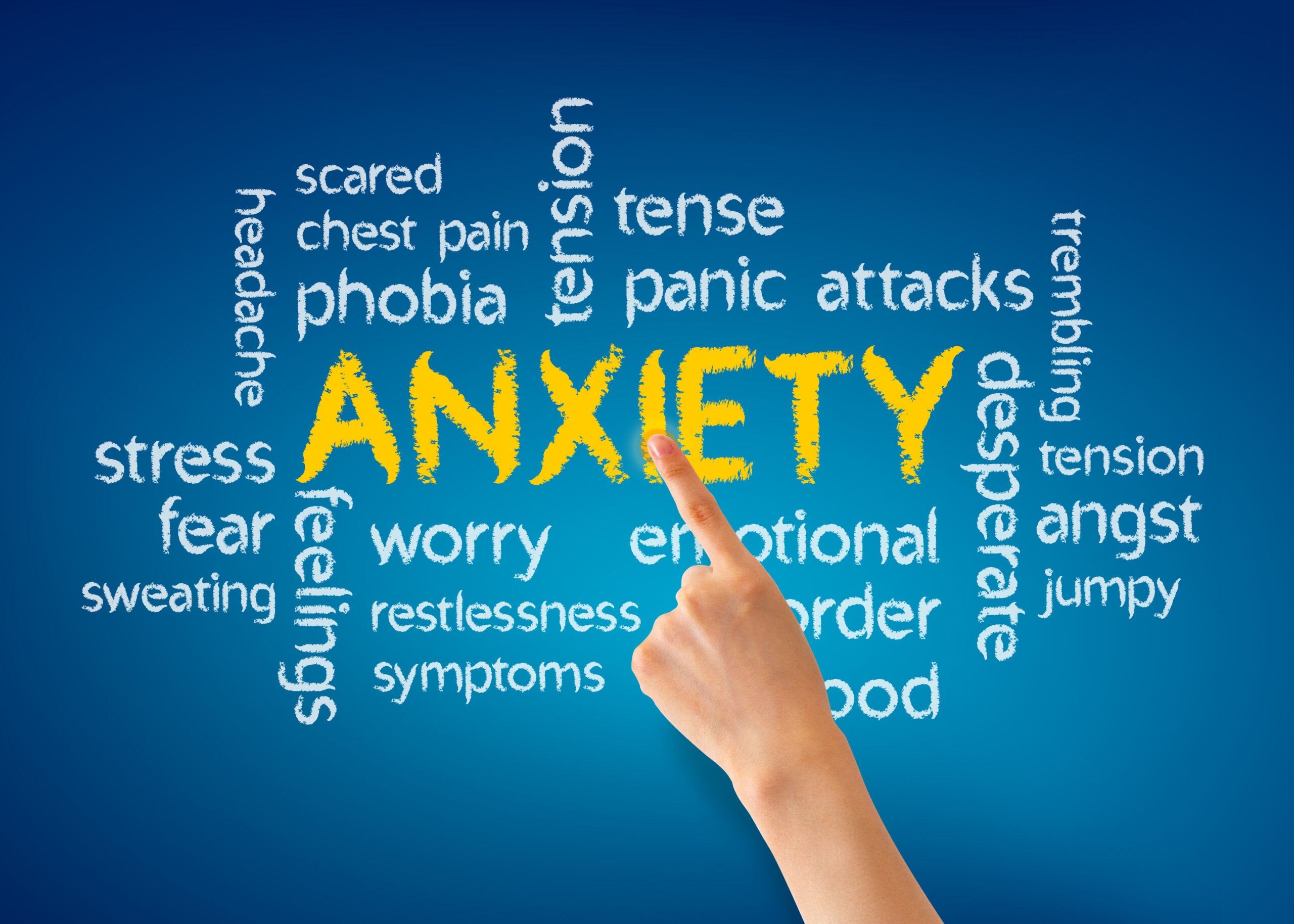Anxiety is the body’s natural response to stress and has been explained as “the body’s automatic fight-or-flight response that is triggered when you feel threatened, under pressure, or are facing a challenging situation, such as a job interview, exam, or first date.” Anxiety is often unavoidable, as every individual will experience stress at some point in his or her life. There is a notable difference between sporadically experiencing anxiety and suffering from an anxiety disorder. The National Alliance on Mental Illness (NAMI) asserts: “Anxiety disorders are a group of related conditions, each having unique symptoms. However, all anxiety disorders have one thing in common: persistent, excessive fear or worry in situations that are not threatening.” The Diagnostic and Statistical Manual of Mental Disorders, Fifth Edition (DSM-5) lists five distinct types of anxiety disorders, which are generalized anxiety disorder (GAD), obsessive-compulsive disorder (OCD), panic disorder, post-traumatic stress disorder (PTSD) and social anxiety disorder (also known as social phobia). Anxiety disorders can be debilitating and interfere with one’s ability to function optimally in daily life. According to Johns Hopkins Medicine anxiety disorders affect up to 18% of the population, making it the most common mental health condition in the United States. Fortunately, there are a variety of treatment options available for those struggling with anxiety.
Dialectical Behavior Therapy
Psychologist Marsha M. Linehan developed DBT in the late 1980s as a means to more effectively treat chronically suicidal individuals diagnosed with borderline personality disorder (BPD). Currently, DBT is not only considered to be the gold standard form of treatment for individuals diagnosed with BPD but has become an effective and relied upon psychotherapeutic method in the treatment of many other mental health conditions, including anxiety. DBT has a multifaceted approach as it includes weekly individual psychotherapy sessions, weekly DBT group skills training therapy sessions, and as-needed phone coaching between sessions. Each therapeutic setting has its own structure and goals. One-on-one therapy sessions allow the providing mental health clinician the ability to focus on the nuanced mental health needs of the individual in treatment. The DBT group skills training sessions focus on providing therapeutic skills in four fundamental areas, known as the four modules, which include the following:
- Core mindfulness: focuses on improving an individual’s ability to accept and be present in the current moment
- Distress tolerance: focuses on increasing an individual’s ability to tolerate pain that may arise from difficult situations, as opposed to trying to change and/ or escape it
- Interpersonal effectiveness: focuses on teaching techniques that enable a person to communicate with others in a way that is assertive, maintains self-respect, and simultaneously strengthens relationships
- Emotion regulation: focuses on methods to successfully change unwanted emotions
The participants of the group are encouraged to share their experience and provide mutual support. After each group session the facilitator will assign homework to reinforce the information learned and practice integrating DBT skills into one’s daily life. Phone coaching provides an individual with twenty-four-hour access to support between sessions, should crisis arise. DBT strives to help individuals learn to identify triggers outside of themselves and pair those triggers with healthy responses and coping mechanisms.
An individual that suffers from debilitating anxiety will benefit most from a customized treatment plan. DBT offers both the ability to provide personalized therapeutic support through the individual therapy sessions, as well as peer support though the DBT skills group sessions. The development of DBT was intended to assist individuals diagnosed with BPD in managing emotion dysregulation and social difficulties. Because many individuals struggling with anxiety have trouble cultivating meaningful relationships, DBT can be a highly effective method of treatment for individuals with anxiety.
The information above is provided for the use of informational purposes only. The above content is not to be substituted for professional advice, diagnosis, or treatment, as in no way is it intended as an attempt to practice medicine, give specific medical advice, including, without limitation, advice concerning the topic of mental health. As such, please do not use any material provided above to disregard professional advice or delay seeking treatment.


